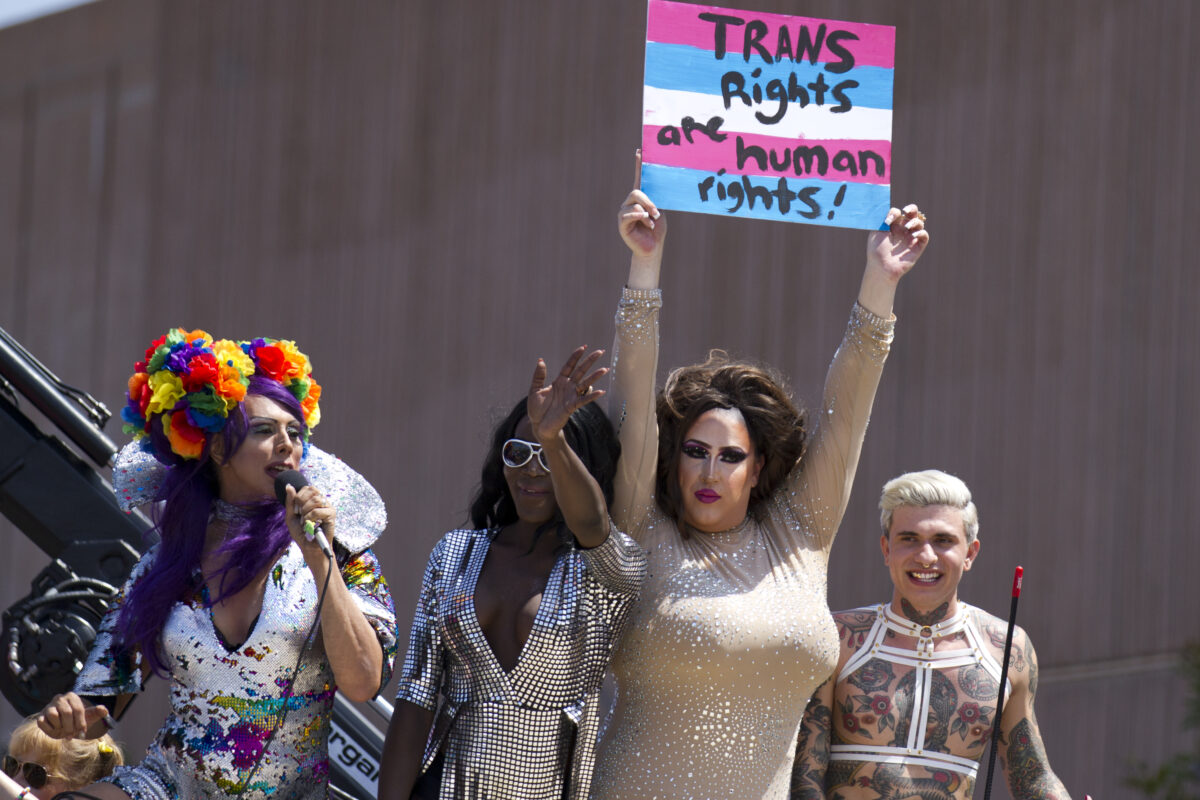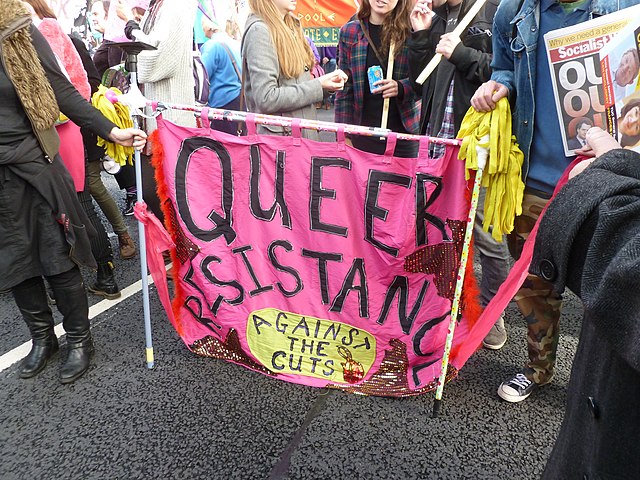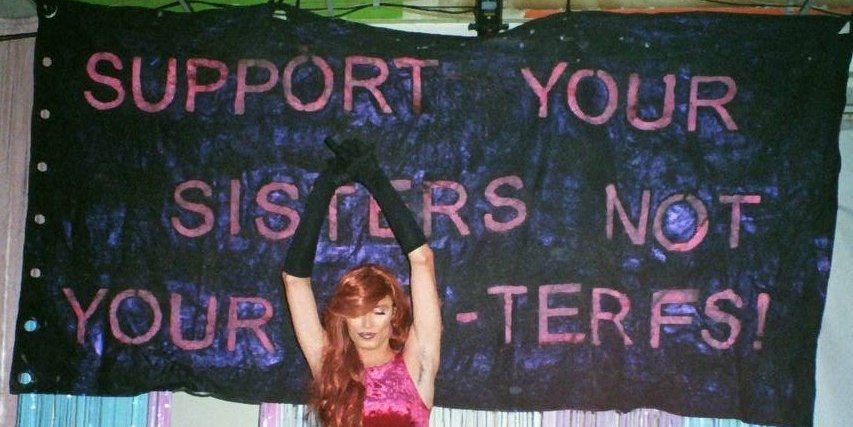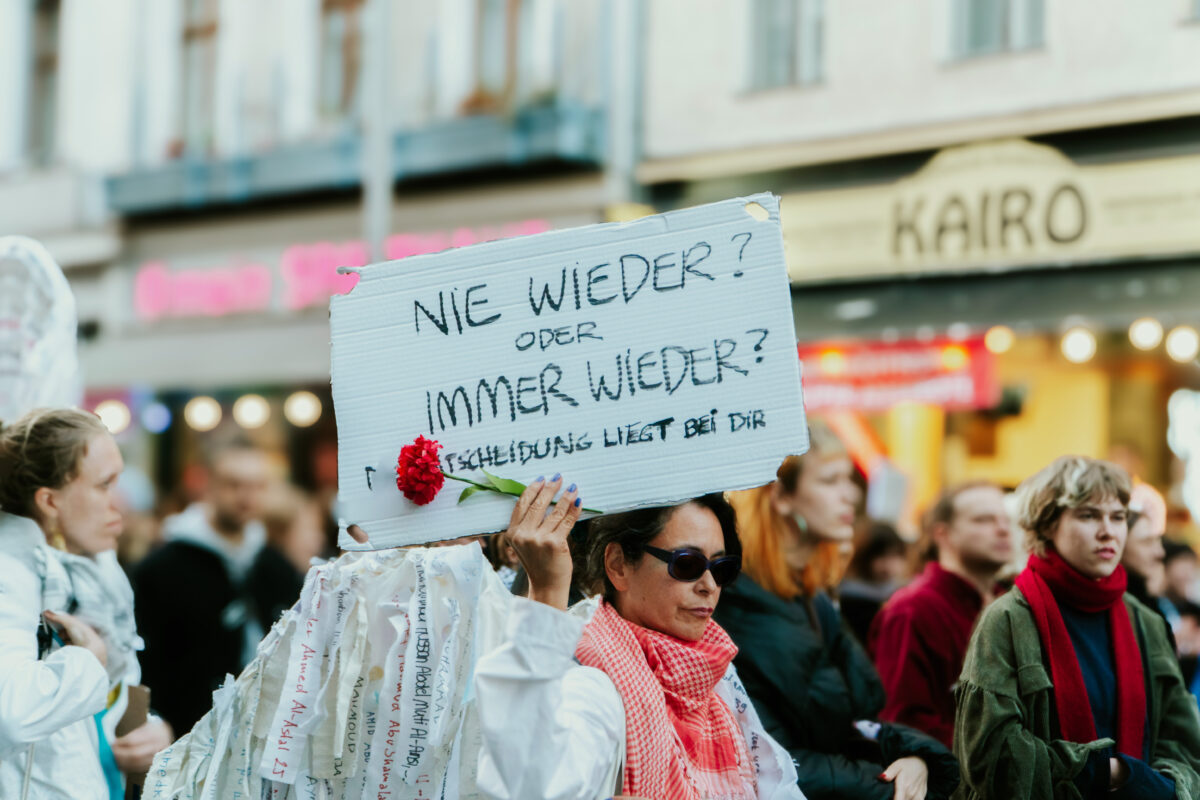by Phil Butland and Anna Southern
Across the world, Trans rights are under attack. Right wing governments are introducing anti-Trans legislation and the religious and fascist right are gleefully adding Trans rights to their campaigns against women’s rights and gay rights. Antisemitic conspiracy theorists have added ‘transgender ideology’ to their hateful conspiracies about Jewish world domination.
Yet in the UK, a strange alliance of radical feminists, conservatives, and a portion of the Left are apparently in agreement. This UK phenomenon is based on the premise that Trans rights undermine or conflict with women’s rights. We will address this point later in this letter, but first a quick summary of the extent of the current offensive.
The Attacks on Trans Rights are worldwide …
-
In the United States, over 110 anti-Trans bills across 37 states have been proposed by Republican law-makers this year. The Republicans pushing the anti-Trans legislation are also, of course, against abortion rights, which means that they are simultaneously pushing anti-abortion legislation.
-
In Spain, the ultra-conservative Catholic group Hazte Oír instigated an anti-Trans bus campaign. The far right Vox party backs this campaign, which also has targeted abortion rights and attacked LGBT groups and women’s associations.
-
In Hungary, Victor Orban’s far-right government passed a law in 2020 ending legal recognition for Trans and intersex people, as part of a wider attack on LGBT rights in the country.
-
In Poland, attacks on LGBT rights have come hand in hand with attacks on women’s rights. ‘LGBT Ideology Free Zones’ and anti-LGBT ‘Family Charters’ have been set up in nearly 100 Polish regions, towns, and cities.
-
In Japan, Trans people must be diagnosed with a mental disorder and be operated on and sterilised if they want to have their gender identity recognised. They must also be unmarried and have no children under 18. A Trans woman living in Japan is now suing the Japanese government for the right to be recognised as a woman. If she wins, she and her wife will make history as Japan’s first same sex married couple.
… and in the UK
In the UK, there has also been a recent surge in transphobic hate crimes. Between 2019 and 2020, transphobic hate crimes rose by 16%. Media coverage about Trans people is often toxic, with Trans people often depicted as aggressive, predatory, and unreasonable.
An atmosphere of moral panic has been whipped up. The UK Conservative government has postponed changes to the Gender Recognition Act (GRA) which would allow Trans people to self-identify their gender. There is hope though, as recent polls show that a majority of UK people, especially women, support Trans rights.
Recently, a UK woman named Maya Forstater won an appeal against an employment tribunal. The original tribunal took place after Forstater’s work contract was not renewed due to complaints about her online and workplace bullying, which included her repeatedly misgendering Trans people.
The initial tribunal had found that her anti-Trans beliefs were not protected by the Equality Act 2010, were a threat to the dignity of Trans people, and were not ‘worthy of respect in a democratic society’. The appeal found that her beliefs should have been protected and she will get a new tribunal.
The strange alliance of Trans exclusionary radical feminists, conservatives and ‘gender critical’ minority of UK leftists celebrated this victory. And yet Trans activist Laura Miles explains the real consequences of the ruling:
transphobes and gender critics will see this outcome as a political victory and a license to abuse and harass trans people at work, online and in the streets, as well as a step forward in their strategy of seeking every means possible to undermine trans rights and exclude trans people from social life.
It will undoubtedly make it more likely trans people will be subject to yet more hate speech by those defending their system of transphobic/trans-critical beliefs as being legally legitimate. The tribunal seems to have ignored the proven link between the expression of exclusionary views and exclusionary behaviour. Words have consequences.
So what is the disagreement?
Writing for Counterfire, Lindsey German put the case for what we’ll call the “fence sitting” position. Much of the statement is uncontroversial – the left is split on Trans rights (in Britain at least), and this split must be overcome through respectful discussion and joint activity against oppression. Moreover, oppression does affect working class people disproportionately and cannot be reduced to biology.
Other parts of the statement are less convincing. This is in part because of the nature of the statement. It is a plea for free discussion, which avoids spending too much time outlining what exactly the discussion is about. This is a legitimate method, but it almost inevitably means that some bones of contention are either ignored or misrepresented.
Let’s start with the statement that there is a ‘conflict’ between the rights of women and Trans people, which ‘has to be discussed and debated’. As the statement does not explain what this conflict is, further discussion and debate is somewhat difficult.
So, let us make a couple of assumptions based on what we have experienced from the current debate. Our assumptions are made in good faith. Should the plea for discussion and debate be about something else, then let’s talk about these specific issues rather than engaging in an abstract discussion about free speech.
Is it about toilets?
One of the main arguments used by “trans critical” people is that men could register as Trans in order to enter women’s toilets and harass women. This is an argument that originated with the right wing and is reminiscent of similar arguments used against gay men in the 1980s. It also has little to do with the reality of what is happening at the moment.
In countries such as Ireland which have introduced Self-ID years ago, we cannot find any evidence that men have been registering as Trans to smuggle themselves into toilets. Besides which, the Equality Act 2010, already gives Trans people in the UK the right to not be discriminated against. This explicitly includes access to toilets.
Similarly, the same act already contains the potential for exemptions for spaces such as prisons and women’s shelters, and admissions are already considered on a case-by-case basis.
How split is the Left on the issue?
A second weakness of the article is that the statement that ‘many’ of the left and Trans people ‘take different views’ is misleading. It gives a false impression that the Left and Trans people are split down the middle on the issue. Let’s be clear about this. The ‘gender critical’ faction represents a clear minority of the British Left and is effectively non-existent in most other countries.
None of this means that the Left should not discuss these issues, but nor does it mean that all views are equally valid. This would be a ‘postmodern idealist view’ rightly criticized elsewhere in the statement.
It is not too long ago that a significant proportion of the Left thought that being gay is a ‘bourgeois deviation’ and held some very sexist views on women. Even today, many Leftists support immigration controls on the basis that people born in ‘our’ country deserve more rights than those born elsewhere.
The fact that these ideas are sincerely held by people who take a good position on other issues does not make them right. Nor does it give people who hold these ideas the right to be invited to speak about them on every leftwing panel. While No Platform should indeed be only used against Fascists, this does not mean that our meetings should have to contain speakers telling ‘all sides of the story’, including ideas which we find repellent.
Who is splitting the movement?
This brings us to our final argument (for now). The article is quite correct to point out that ‘the trans debate on the left is in danger of turning people who should be potential supporters and allies into enemies’. But who exactly is splitting the movement?
The statement argues that claiming that ‘those who do not agree on questions of gender are transphobes, TERFs, bigots’ weakens the movement as a whole. This implies that the main splitters are Trans people reacting to Leftists who claim to support them while wilfully misgendering them, accusing Trans women of being potential rapists and insisting that Trans women are not women.
At a time of unprecedented attacks on Trans rights, some sensitivity is required. We could add that the article is also weak on recognising and responding to the reality of oppression against Trans and non-binary people
The attacks of some Leftists on Trans self-identity seems to be at best an academic distraction from the main debate. At worst it involves people who claim to be socialists using the same language and arguments of the oppressor, enabling and providing left cover for what are objectively reactionary positions. Such paternalism is no basis on which we can build a movement of solidarity with victims of oppression.
Solidarity comes first
We stand in solidarity with our Trans sisters, brothers, and siblings around the world in their fight against oppression. We believe that women’s rights and Trans rights are not in conflict, but are under attack from a common oppressor. The framing of the Trans fight for liberation by some feminists and leftists as a fundamental clash with women’s rights has only served to divide us at a time when we need to be united against a serious right-wing threat.
As Laura Miles puts it, ‘Equal rights is not a finite cake where different oppressed groups have to fight each other for bigger slices. Austerity and racism affect all of us: there is a common class enemy. Socialists start from the notion that an injury to one is an injury to all’. Our ‘gender critical’ comrades would do well to remember it.
Anna Southern and Phil Butland are both British socialists based in Berlin. We are very grateful to Laura Miles for giving feedback on an early version of this article, and wholeheartedly recommend her book Transgender Resistance: Socialism and the Fight for Trans Liberation to anyone wanting to know more about the fight for Trans rights.




